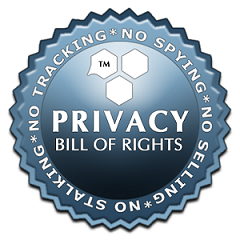
The Tokenization Of GreenFire
The Token Economics Of The Landfill A “Rubbish-Based Economy”
GreenFire Engineered Reclamation
GreenFire is an organization designed to remove plastic waste from the world’s oceans, beaches and waterways while empowering people living in poverty to raise their standard of living.
GreenFire wants to preserve plastic waste through a specially developed deposit system as well as give people an incentive to collect and sort. In order to make the system attractive, more money is returned than was previously paid in deposit. this could be achieved from the value a sorted plastic waste possesses for further recycling process.
A strong focus will be on educating and empowering local people to both reveal value in themselves and to see the value in turning recyclable plastics into necessities and entrepreneurial opportunities. Additional efforts will go towards community collection projects that raise the overall standard of living in our host communities.
The group's vision is simple: By using cryptocurrency payments to reward people for recycling plastic waste, it hopes to provide a better incentive system, while also improving the quality of life for people who participate in its recycling networks.
The GreenFire use of Tokens is a little different to straight 'coins' given that they are more closely connected to one particular platform's ecosystem, and in a way, also act as shares in that platform. This is the basics of the Landfill Economy.
We believe in projects creating token-powered ecosystems. So, not just payment tokens or tokens that people can pump and dump, but creating an ecosystem, where people can actually use the tokens.
Alternatively, these tokens can be traded on crypto exchanges for other cryptocurrencies, or for fiat money. This idea may not be entirely unfamiliar to those who play online or video games, given that these often incorporate some form of 'in-game' currency or token that can sometimes be purchased for real-world currency. The difference is that these 'in-game' tokens cannot be traded back into real-world currency at an exchange.
Secondly, let's take the idea that these tokens can act as shares in the particular platform. This is due to the fact that most cryptocurrencies are modelled on gold, as every currency in the world used to be until the introduction of our current, 'fiat' monetary system. S
In addition, on decentralised, blockchain-based platforms – GreenFire, tokens also give you 'voting power' as part of a member of a community.
In the absence of a centralized regulatory body, these ecosystems are often governed instead by the communities who create them. For example, in the Landfill Economy members of the community can put themselves forward to a pool of arbitrators who will decide on contentious issues, and for The Landfill Economy, the number of tokens held translates directly into the amount of voting power wielded on issues.
In this case, tokens are not creating new systems, but simply offering a way to improve the current system.
Again, in these systems, trust would primarily come from smart contracts baked into the system, rather than lawyers.
The Token will quickly convert (with a transaction time of four seconds) fiat money into a cryptocurrency, to move it through the system before converting back into whatever the required currency is at the end.
Plastic Bank – Tokens for Waste
This is achieved through “Plastic Banks” established strategically in impoverished areas with an existing abundance of plastic waste. The Plastic Bank is making plastic waste a currency in addition to offering people both education and the opportunity to trade plastics for access to 3D printing services & other life improving opportunities.
GreenFire Plastic Bank is a social enterprise that creates environmental impact in areas with high levels of poverty and plastic pollution by turning plastic waste into a cryptocurrency by enabling the exchange of plastic for blockchain secure digital tokens they reveal the value of plastic this empowers recycling ecosystems and stops the flow of plastic into the ocean by creating a market that connects those who use plastic waste for recycling and those who have time to collect.
A cryptocurrency-based recycling rewards are important not just because they provide financial incentives for recycling that can be more valuable than the bottle deposits available in developed countries, but also because they enable rewards payments for people in developing countries who lack access to banks, and therefore cannot be paid in other ways for recycling. Given that much of the world's trash ends up in developing nations, cryptocurrency recycling rewards promise to be particularly innovative for increasing recycling rates worldwide – and, by extension, reducing overall waste and poverty.
That is exactly what makes the GreenFire Plastic Bank deposit system so attractive. The ‘GreenFire’ project wants to address this issue and obtain plastic waste through a specially developed deposit system. In addition, the project should make it possible to give the population an incentive to collect and sort.
The developing system is based on the fully suitable properties of , a distributed ledger technology. is a young cryptocurrency that enables a fast, secure and free transfer of data and finances.
Micropayments could be carried out together with data exchange. Furthermore, this system can also be used away from the facilities otherwise required for deposit systems, e.g. shops. If one thinks on a global scale, then this characteristic can be enormously important. That is exactly what makes the deposit system so attractive.
The GreenFire project wants to address this issue and obtain pure plastic waste through a specially developed deposit system. In addition, the project should make it possible to give the population an incentive to collect and sort.
People who want to join are required to register as collectors, producers, or generators of waste.
The platform connects producers (end-users – GreenFire) to collectors, who are responsible for sorting items according to environmental regulations. After that, the collectors are connected with generators, which are organisations that process the waste.
Each producer must upload all the details about the items thrown away on the network. Based on this information, users get rewards in the form of cryptocurrency. Collectors and generators receive digital coins as well based on the volume of waste they gather and process.
According to local authorities, citizens can use Coins in local shops, as well as for paying taxes and municipal fees.
GreenFire wants to preserve pure plastic waste through a specially developed deposit system as well as give people an incentive to collect and sort. In order to make the system attractive, more money is returned than was previously paid in deposit. this could be achieved from the value a sorted plastic waste possesses for further recycling process
The deposit system based on offers the following advantages:
-
The population gets a financial incentive for collecting, sorting and distributing plastic waste. More is paid back than has been paid as a deposit.
-
The application is simple. It is based on , a modern distributed ledger technology and could be used worldwide.
-
The collector gets the deposit either on his Wallet or thanks to a cooperation also in his local currency, e.g. Euro paid out to his account.
-
The mechanical sorting of plastic waste is still complex today and also requires a lot of energy. Furthermore, a recycled plastic requires far less energy than a completely new production process. The deposit system thus helps to reduce CO2 emissions and achieve climate targets.
-
This system makes it easier for the industry to achieve its recycling targets because it eliminates the upstream step of expensive mechanical sorting.
Mostly aimed at collectors, it not only tracks how much they’ve collected, but also provides a digital wallet through which they can park their earnings. That’s important for people who don’t qualify for bank accounts and for whom it’s dangerous to walk around with a lot of money. Also stores that sell stuff for collectors accept payments from those accounts. Also, collectors can use plastic credits to buy a phone and to power their devices through solar power stations at stores.
The takeaway
Cryptocurrency and recycling could make extremely good bedfellows. Crypto incentives have the potential to motivate people to be more careful and protect the environment. At the same time, authorities that rely on the blockchain and governments that back digital coins send an influential pro-cryptocurrency message.
These initiatives could become examples of best practices for multiple other applications of cryptocurrency in various industries – with the plus that they have the potential to improve the quality of life by protecting the environment.
We believe there will be many use cases for tokens but what we're witnessing is a dramatic shift in interest in the market towards decentralized systems. We believe at the heart of this movement is going to be Tokenization. They have the potential to distribute value in a way that is more fair, secure, and even.
TP


